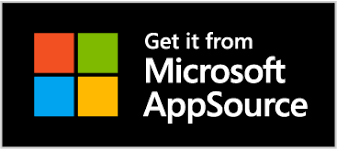
Cost
Salesforce has flexible pricing that starts at $25 per user per month and can go up to $300 per user per month. The higher in price, the more features are included.
They have a comprehensive list of what is included across each level of subscription to Salesforce.
Microsoft Dynamics 365 costs are a bit more complex than Salesforce. There are various components that are separated by topics like sales, marketing, and customer data. There are additional costs per user for HR and Finance options.
The initial customer data platform cost is $95 per user per month. The addition of sales or marketing integrations start at an extra $50 per month per user.
Salesforce works more as a scaled model whereas Dynamics 365 pricing is based on users and additional components.
Training & Support
Salesforce provides 24/7 support, but only when you purchase the Unlimited package at the highest price point. It does however provide an online community for users to post questions and support each other.
Additionally, there is a Salesforce help center with tutorials and documentation. Their customer support portal has an option to use your login credentials to submit new cases and review old ones.
Microsoft Learning is a great platform for training needs created by Microsoft employees. It includes video tutorials across a broad range of topics. The option for a free trial lets users play around with the platform beforehand.
A subscription gives you full support from customer service. The next level in support gives you direct professional support at a fee. Any further required support can be discussed.
Software Location
Salesforce operates mainly on a cloud-based service. This means there is no option for on-premise software. The software would be held on the vendor’s server.
Microsoft Dynamics 365 operates using Microsoft Azure cloud services and on-premise options. In this case, a business can choose whether to host the software on their own servers or at the vendor’s location.
The Advantages of Microsoft Dynamics 365 Over Salesforce
Microsoft Dynamics encompasses all Microsoft products. It provides complete flexibility to integrate with apps like Power BI, Outlook, and more.
If your business already uses other Microsoft products, it would be an easier transition to use Dynamics. The software can stay on site in terms of using your own server.
Additionally, the AI integration provides real-time analytics and automated workflows. This feature gives better recommendations and insights into customer next steps. This allows for better retention and increases revenue.

Why Microsoft Dynamics 365 May Be the Right Choice for Your Business
The choice really comes down to what you need for your business. However, there is more flexibility with Microsoft Dynamics 365 in terms of streamlining all your business processes.
The platform acts as an all-in-one solution. With the flexibility to choose how much you want included, users of any position and businesses of any size can benefit.
Choose to adjust Microsoft Dynamics 365 features available to you as you grow with the platform. As a large player in the CRM industry, it has proven to increase business success.
Start With Dynamics 365 Today
Whether you’re a manufacturing business or you’re looking for CRM for construction, the customizable system can work for you.
Tech and IT companies partner with Microsoft to support businesses in setting up the platform. TrellisPoint is an example of one of these support systems. They work together with companies to assess needs of the company and make suggestions for what they need from Microsoft Dynamics.
Reach out to TrellisPoint to answer further questions and assist you in setting up the platform.
Learn how Microsoft can help you
Microsoft Dynamics 365 vs Salesforce FAQ
-
How does the integration capability of Microsoft Dynamics 365 with other Microsoft products affect its overall value proposition compared to Salesforce?
Integration Capability with Microsoft Products: Microsoft Dynamics 365 offers unparalleled integration capabilities with other Microsoft products, enhancing its overall value proposition for businesses deeply embedded in the Microsoft ecosystem. This seamless integration across Microsoft 365, SharePoint, and Power BI, for instance, facilitates a cohesive and productive work environment. Users can enjoy a unified experience, accessing customer data within Outlook, analyzing sales forecasts using Excel, and leveraging the advanced analytics of Power BI, all within the Dynamics 365 interface. This integration not only boosts productivity but also ensures a smoother workflow, making Dynamics 365 a more attractive option for businesses seeking a comprehensive solution that ties closely with their existing Microsoft infrastructure. -
Are there specific industries or business sizes that benefit more from choosing Salesforce over Microsoft Dynamics 365, or vice versa?
Suitability for Various Industries and Business Sizes: Microsoft Dynamics 365 is particularly well-suited to a wide range of industries and business sizes, thanks to its flexibility and the comprehensive nature of its offerings. For organizations that rely on Microsoft's suite of products, Dynamics 365 presents a natural extension that integrates deeply with these tools, enhancing efficiency and user experience. Furthermore, its unique combination of CRM and ERP capabilities within the same platform makes it an ideal choice for businesses looking for an all-in-one solution. -
How do the roadmaps for future development and innovation compare between Microsoft Dynamics 365 and Salesforce?
Future Development and Innovation: Microsoft's commitment to innovation is evident in the continuous updates and new features added to Dynamics 365, designed to keep businesses at the forefront of technology. Microsoft focuses on enhancing Dynamics 365 with the latest advancements in artificial intelligence through Azure AI, integrating mixed reality and IoT capabilities, and deepening the connection with its extensive suite of productivity tools. This forward-thinking approach ensures that businesses using Dynamics 365 are equipped with the latest technologies to drive growth and improve operations. Unlike Salesforce, Microsoft's strategy revolves around creating a more interconnected and intelligent business application ecosystem, which aligns with the needs of modern enterprises looking for a solution that not only supports their current operations but also prepares them for future technological advancements.




